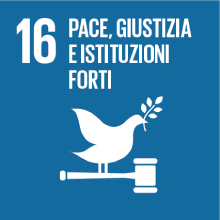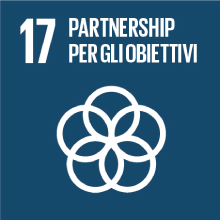HISTORY OF INTERNATIONAL RELATIONS
- Anno accademico
- 2019/2020 Programmi anni precedenti
- Titolo corso in inglese
- HISTORY OF INTERNATIONAL RELATIONS
- Codice insegnamento
- LM3140 (AF:309173 AR:168495)
- Lingua di insegnamento
- Inglese
- Modalità
- Crediti formativi universitari
- 6
- Livello laurea
- Laurea magistrale (DM270)
- Settore scientifico disciplinare
- SPS/06
- Periodo
- I Semestre
- Anno corso
- 1
- Spazio Moodle
- Link allo spazio del corso
Inquadramento dell'insegnamento nel percorso del corso di studio
Risultati di apprendimento attesi
a) manage confidently the main events and concepts pertaining to the history of the international political economy from the 1970s to the present;
b) display a confident knowledge of the most updated literature on the subject, including the ability to critically compare diverging views and approaches;
c) read and interpret various types of documents, and to make use of such ability in the preparation of their own research projects;
d) communicate their work and research in English and take part in a debate about international affairs;
e) consolidate further their competence in the field of international history in an autonomous and self-organized manner.
Prerequisiti
Ennio Di Nolfo, Storia delle Relazioni Internazionali, Laterza, 2008 (or later editions)
Guido Formigoni, Storia della politica internazionale nell'età contemporanea, Il Mulino (2006 or later editions)
Antonio Varsori, Storia Internazionale, Il Mulino, 2014
Anthony Best et al., Storia delle relazioni internazionali, UTET, 2013
William Keylor, "A world of nations", Oxford University Press, 2009 (or later editions)
Anthony Best et. al, International History, Routledge, 2008 (or later editions)
John W. Young and John Kent, International Relations Since 1945, OUP, 2013 (or later editions)
Jean-Baptiste Duroselle and André Kaspi, Histoire des relations internationales de 1945 à nos jours, Armand Colin, 2017
Contenuti
Testi di riferimento
1. the class notes;
2. the class slides that will be made available at the end of the course in the moodle page of the class (https://moodle.unive.it/course/view.php?id=2087 );
3. a list of readings which will be made available at the beginning of the course in the moodle page of the class (https://moodle.unive.it/course/view.php?id=2087 ).
Students who do not attend the class regularly, should prepare the exam on:
1. the class slides that will be made available at the end of the course in the moodle page of the class (https://moodle.unive.it/course/view.php?id=2087 );
2. a list of readings which will be made available at the beginning of the course in the moodle page of the class (https://moodle.unive.it/course/view.php?id=2087 );
3. the book by Daniel Sargent, "A superpower transformed. The Remaking of American Foreign Relations in the 1970s", Oxford University Press, 2014
PLEASE NOTE:
1) to "prepare the exam" means to study carefully the material listed above. It is not a synonym of "taking a look" at the material;
2) the course will treat the reading material critically in the attempt to show the implications, and the respective strengths and weaknesses, of alternative interpretations of the same facts. Students should not be surprised to see that different articles make divergent claims on the same subjects, nor to discover that some of these claims can be proved to be stronger than others. Particularly for students who do not attend the class regularly, it is important that they associate the reading materials with the class slides. A meeting with the professor is also advisable.
Modalità di verifica dell'apprendimento
The exam has a written part and an oral part. Given the measures for "social distancing" adopted in response to the "coronavirus emergency", for all the remaining examination sessions of the academic year 2019-20, both the written and the oral part will occur by remote.
The written part of the exam is a short essay (ca. 1200 words) on a question provided by the teacher via Moodle. The specific technical arrangements will be communicated before the exam. The written part of the exam has a duration of three hours. The question will require students to use various parts of the program in the construction of their answers. The written exam is "open notes, open books", that is students may consult their study material and refer to it (provided that they cite it appropriately). It aims at verifying the preparation of the students on the topics of the course (facts, dates, names, definitions, concepts) and their capacity to organize and communicate their knowledge (completeness, synthesis, consistency, clarity, precision). In the written part of the exam, students will have to display their: a) ability in rendering a coherent picture concerning the main events that have marked the development of international political economy from the 1970s to the present; b) knowledge of the origins and dynamics of the main historical processes of the period under examination (fall of Bretton Woods; post-Bretton Woods negotiations; the "oil crisis" and its consequences; petrodollar recycling; the North-South dialogue and confrontation; superpower détente; the "second cold war"; the "international debt crisis"; the crisis and fall of the Soviet Union); c) knowledge of the different interpretations of the themes above and ability to critically debate them, also on the basis of the evidence form primary sources; d) ability to make use of the historical categories adopted in the readings and in class; e) ability to develop their own reflections on the topics of the course.
The oral exam has an average duration of 15 minutes and will take place in video-videoconference. Technical details will be communicated before the exam. It aims at discussing any critical point emerging from the written exam and at checking the students' ability to answer questions concerning other parts of the program.
Please note #1: the inability to locate the specific events discussed in the course in the broader context of the international history of the 20th century (as from the Requirements section above) constitutes a reason for not passing the exam.
Please note #2: Around the 7th-8th week of the course, students can turn in via moodle a short essay (ca. 400 words) on a subject indicated by the teacher. This is a non-mandatory exercise open to all students, and is aimed at allowing students to familiarize with the type of work they will be asked to write at the final written exam (same kind of question, same rules, shorter duration). The precise date of the test will be communicated in advance on the teacher's announcements and moodle pages. The test will receive a score between 0 and 3 and such score will be added, in case, to the grade achieved in the "regular" exam.
Modalità di esame
Metodi didattici
Altre informazioni
Obiettivi Agenda 2030 per lo sviluppo sostenibile
Questo insegnamento tratta argomenti connessi alla macroarea "Cooperazione internazionale" e concorre alla realizzazione dei relativi obiettivi ONU dell'Agenda 2030 per lo Sviluppo Sostenibile


